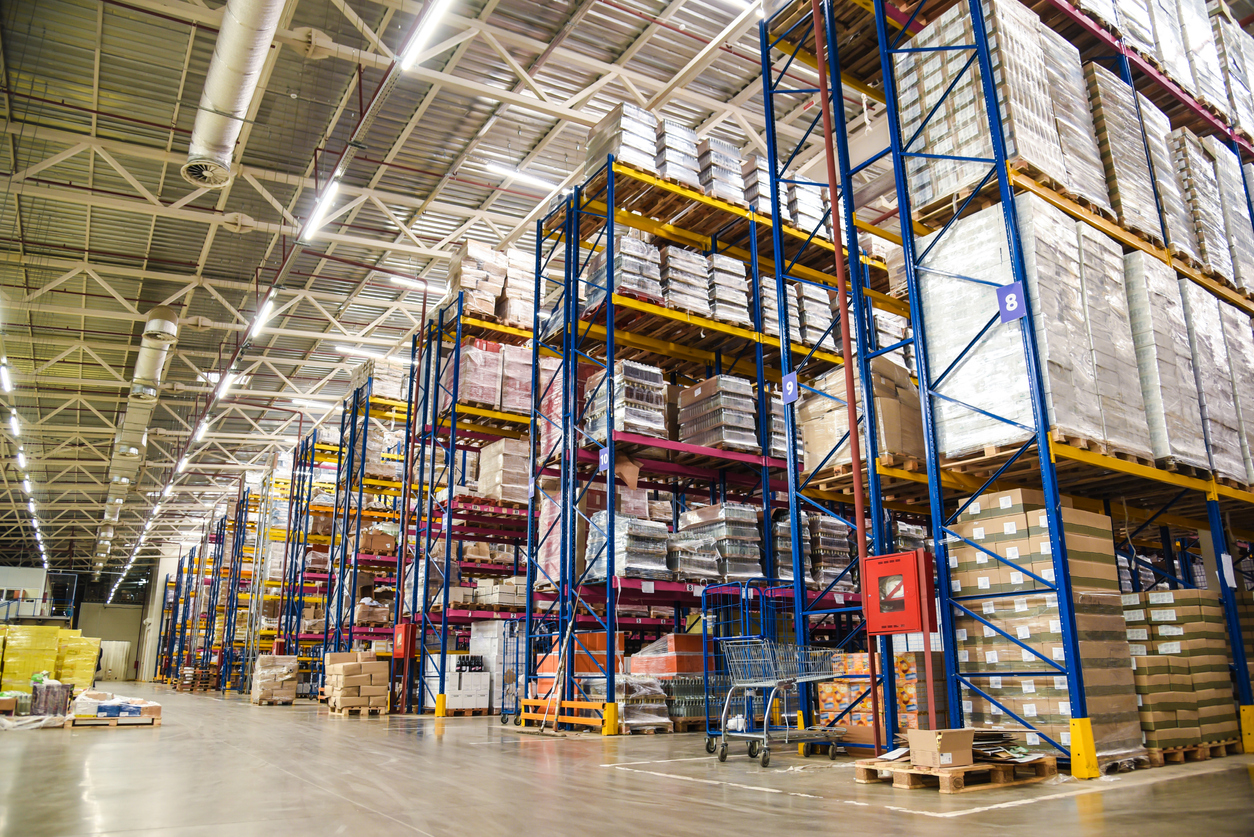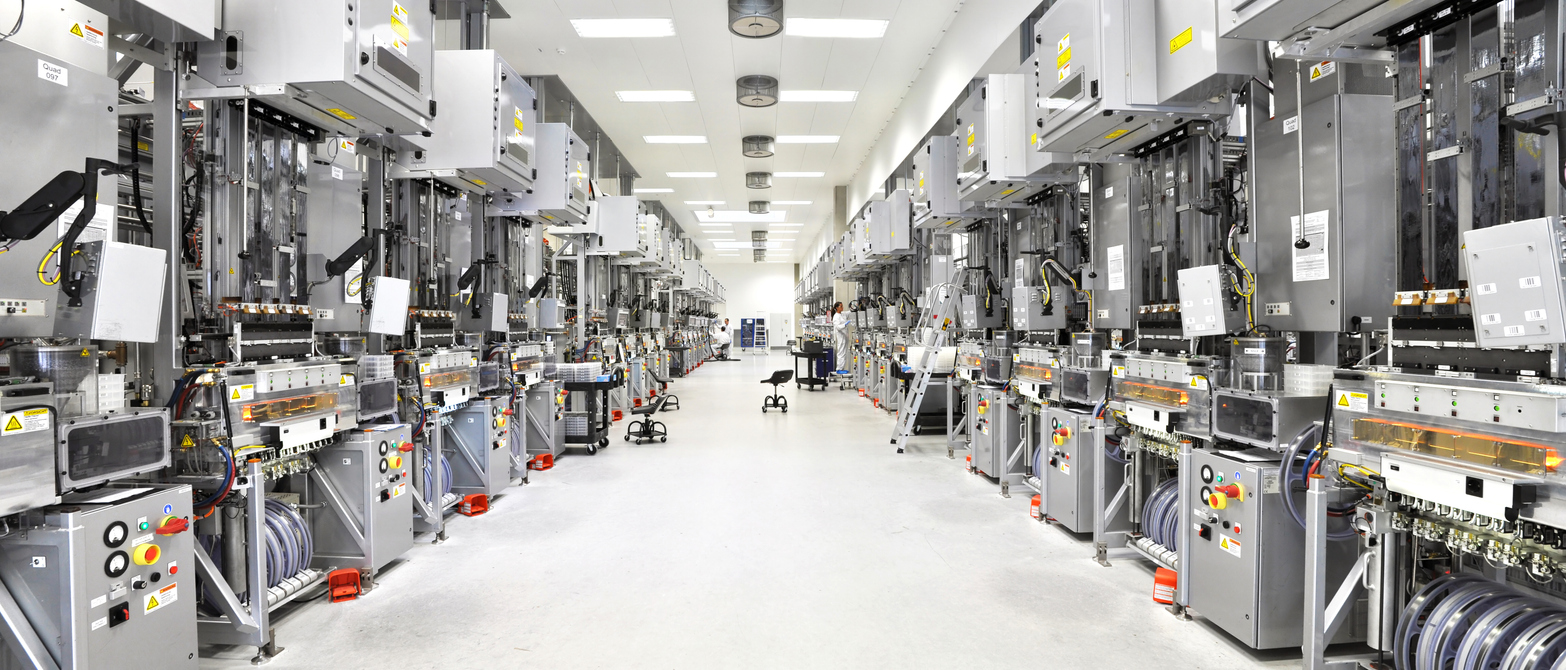Warehousing’s Impact on FMCG Success: An Inside Look at Wigmore Trading’s Operations
Warehousing’s Impact on FMCG Success: An Inside Look at Wigmore Trading’s Operations
Are you curious about the behind-the-scenes operations that drive the success of fast-moving consumer goods (FMCG) companies? Look no further! In this blog post, we are taking you on an exclusive inside look at Wigmore Trading’s warehousing operations and how they play a pivotal role in their FMCG triumphs. From efficient stock management to streamlined distribution processes, get ready to uncover the secret ingredients that make Wigmore Trading a force to reckon with in the industry. So, grab your virtual hard hat and join us as we explore the fascinating world where warehousing meets FMCG success!
Introduction to Wigmore Trading and their FMCG operations
Wigmore Trading is a leading FMCG (Fast-Moving Consumer Goods) company that has been operating in the warehousing industry for over 20 years. The company specializes in the distribution and storage of a wide range of consumer goods, including food, household products, personal care items, and more.
The core philosophy of Wigmore Trading is to provide efficient and reliable warehousing services that support the success of their clients’ businesses. This commitment to excellence has enabled them to build strong partnerships with popular brands and manufacturers across various industries.
Their state-of-the-art warehousing facilities are equipped with advanced technology and processes to ensure the safe handling, storage, and distribution of goods. With temperature-controlled zones, strict quality control measures, and round-the-clock security systems in place, Wigmore Trading guarantees the integrity and freshness of all products under its care.
One key factor that sets Wigmore Trading apart from its competitors is its focus on customization. The company understands that every client’s needs are unique and therefore offers tailor-made solutions to meet their specific requirements. From inventory management to order fulfillment, Wigmore Trading offers flexible options that allow clients to optimize their supply chain operations without compromising on quality or efficiency.
Moreover, Wigmore Trading prides itself on its highly skilled team of professionals who have extensive experience in managing FMCG operations. They undergo regular training programs to stay updated on industry trends and best practices, ensuring that they can deliver exceptional service at all times.
In addition to its top-notch facilities and personnel, Wigmore Trading also places great importance on sustainability. The company continually invests in eco-friendly technologies and practices to reduce its carbon footprint while maintaining cost-effectiveness for clients.
Wigmore Trading’s unwavering dedication towards customer satisfaction has earned them a stellar reputation as one of the most trusted names in the warehousing industry for FMCG operations. Their commitment towards providing efficient logistics support has not only helped numerous brands achieve their goals but has also contributed to the growth of the FMCG sector as a whole. In the following sections, we will explore how Wigmore Trading’s warehousing operations have played a crucial role in the success of various FMCG companies.
The Importance of Warehousing in the FMCG Industry
The FMCG (Fast Moving Consumer Goods) industry is a highly dynamic and competitive market, with products that have a short shelf life and high demand. In such an environment, warehousing plays a crucial role in the success of FMCG companies. It serves as the backbone of supply chain operations, ensuring efficient storage and distribution of goods to meet consumer demands.
One of the primary reasons for the importance of warehousing in the FMCG industry is its ability to maintain product quality. With perishable items like food, beverages, and pharmaceuticals being part of this sector, proper storage conditions are critical to prevent spoilage or damage. Warehouses equipped with temperature-controlled environments ensure that these goods are kept at optimal conditions to preserve their quality until they reach consumers.
In addition to preserving product quality, warehouses also play a vital role in managing inventory levels. In the fast-paced FMCG industry, maintaining adequate stock levels is crucial to meet sudden spikes in demand. Warehouses act as a buffer between production and retail outlets by storing excess inventory during peak seasons and releasing them when needed. This helps companies avoid shortages or overstocking situations, which can lead to loss of sales or increased costs respectively.
Another significant advantage of warehousing in the FMCG industry is its impact on cost reduction. By optimizing warehouse operations such as location selection, layout design, and use of technology like automation systems, companies can reduce their transportation costs significantly. Warehouses located strategically near production sites or major markets can also save time and money on transportation expenses.
Moreover, efficient warehousing practices can also help minimize losses due to damaged goods or theft. Properly managing inventory levels through regular stock checks can prevent overstocking situations that may lead to wastage of products with short shelf lives. Additionally, advanced security measures such as CCTV cameras and alarm systems in warehouses can deter thefts and minimize losses for companies.
Furthermore, warehousing also facilitates just-in-time (JIT) delivery to retailers, a practice widely used in the FMCG industry. JIT allows companies to minimize their inventory levels by delivering goods to retailers only when there is demand, reducing the need for storage space and associated costs. This practice also ensures fresher products reach consumers, enhancing customer satisfaction.
Warehousing plays an integral role in the success of FMCG companies by ensuring product quality, managing inventory levels and costs, minimizing losses, and facilitating JIT deliveries. As evident from Wigmore Trading’s operations, a well-managed warehouse is crucial for meeting consumer demands and staying ahead in the highly competitive FMCG market.
How Wigmore Trading Utilizes Warehousing to Achieve Success
Wigmore Trading is a leading FMCG (Fast-Moving Consumer Goods) company that has been able to achieve success in the competitive market through its strategic utilization of warehousing. Warehousing plays a crucial role in the overall supply chain management of any business, especially in the FMCG sector where fast and efficient delivery of products is essential for meeting consumer demands.
At Wigmore Trading, we understand the significance of warehousing and have implemented various techniques and strategies to optimize our operations. Our warehousing system is designed to cater to the specific needs of our business, ensuring smooth and timely movement of goods from production to distribution centers.
One key way that we utilize warehousing at Wigmore Trading is by implementing an inventory management system. This allows us to keep track of all our products and their levels at each warehouse location. By having this information readily available, we are able to plan and manage our inventory effectively. This ensures that we always have enough stock on hand to meet customer demand without overstocking, which can result in unnecessary costs.
Another important aspect of our warehousing strategy is the use of modern technology such as automation and data analytics. We have invested in state-of-the-art warehouse management systems that help us streamline processes, reduce manual labor, and improve accuracy. This not only saves time but also minimizes errors in order fulfillment, resulting in satisfied customers.
Additionally, Wigmore Trading has strategically located warehouses across different regions where our products are most popular. This allows us to minimize transportation costs by delivering goods from nearby warehouses instead of shipping them from a central location. It also enables us to reach customers faster with reduced lead times.
We also prioritize maintaining well-organized and clean warehouses as it directly affects product quality control. At Wigmore Trading, we ensure strict adherence to safety standards for both employees working in the warehouses as well as for storage conditions for products. Proper ventilation, temperature control systems and rodent control measures are all in place to prevent any damage or contamination of our goods.
Warehousing plays a critical role in Wigmore Trading’s success as an FMCG company. By implementing various strategies such as inventory management systems, technology, and strategic warehouse locations, we have been able to achieve efficiency and effectiveness in our operations. We continuously strive to improve our warehousing techniques to meet the ever-changing demands of the market and ensure customer satisfaction.
The Role of Technology in Wigmore Trading’s Warehousing Operations
The Role of Technology in Wigmore Trading’s Warehousing Operations
In today’s fast-paced business world, technology has become an integral part of any successful supply chain operation. This is especially true for companies in the FMCG (Fast-Moving Consumer Goods) industry, where efficiency and speed are crucial to meeting customer demands. At Wigmore Trading, we understand the importance of utilizing technology in our warehousing operations to ensure smooth and effective management of our inventory.
One of the key ways technology plays a role in our warehousing operations is through the use of Warehouse Management Systems (WMS). This software enables us to have real-time visibility into our inventory levels, locations, and movements. With a WMS, we can accurately track all incoming and outgoing products, which helps us avoid overstocking or stockouts that could result in lost sales. It also allows us to monitor product expiration dates and properly rotate stock to minimize waste.
Another critical aspect of our warehousing operations that benefits greatly from technology is the picking process. Through the implementation of barcode scanning systems and handheld devices, we have been able to streamline our picking process significantly. This means faster and more accurate fulfillment of orders for our customers. The use of these technologies also ensures that there are fewer errors during order picking, reducing the need for costly re-shipping or returns.
Furthermore, at Wigmore Trading, we have invested in automation technologies such as conveyor belts and automated storage systems for efficient movement and storage of goods within the warehouse. These systems improve productivity by reducing manual handling time while minimizing potential injury risks for warehouse staff.
Technology has also revolutionized how we manage transportation logistics at Wigmore Trading. With advanced routing software and GPS tracking devices installed on our vehicles, we can optimize delivery routes based on traffic conditions and real-time updates. This results in faster delivery times to customers while saving on fuel costs.
Moreover, with the rise of e-commerce shopping trends, online order fulfillment has become a crucial aspect of our warehousing operations. We have implemented an e-commerce platform that integrates with our WMS, allowing for seamless order processing and tracking. This technology also enables us to efficiently manage returns and exchanges, providing a positive customer experience.
Technology plays a critical role in Wigmore Trading’s warehousing operations. It has significantly improved our inventory management, picking process, productivity, and transportation logistics. With the continued advancements in technology, we are committed to staying ahead of the curve to ensure the success of our FMCG business.
Challenges Faced by Wigmore Trading and How They Overcome Them
Wigmore Trading, a leading FMCG distributor, faces numerous challenges in their daily operations. These challenges not only affect the efficiency of their warehousing processes but also impact their overall success in the highly competitive FMCG market. In this section, we will explore some of the major challenges faced by Wigmore Trading and how they have successfully overcome them.
1. Limited Warehousing Space
One of the biggest challenges faced by Wigmore Trading is limited warehousing space. As an FMCG distributor, they need to stock a wide range of products from different brands and manufacturers. This requires significant storage space that can accommodate large quantities of goods. However, with rapid growth in demand for their products, Wigmore Trading often finds itself struggling to find enough warehouse space to meet its operational needs.
To overcome this challenge, Wigmore Trading has implemented various strategies such as optimizing their warehouse layout and investing in advanced technology solutions like automated storage and retrieval systems (AS/RS). By reorganizing their warehouse layout and utilizing vertical space effectively, they have increased their storage capacity without having to expand physically.
2. Inventory Management
Proper inventory management is crucial for any FMCG business as it directly impacts customer satisfaction and cash flow. For Wigmore Trading, managing inventory efficiently has been a constant challenge due to factors like varying lead times from suppliers and unpredictable demand patterns.
To tackle this issue, Wigmore has adopted a just-in-time (JIT) approach where they order products only when there is a confirmed demand from customers. This helps them reduce excess inventory levels and improve cash flow while ensuring that they always have sufficient stock to meet customer demands.
3. Human Resource Management
The smooth functioning of any warehousing operation depends on an efficient workforce. However, finding skilled workers who are willing to work in physically demanding conditions can be challenging for companies like Wigmore Trading.
To address this issue, Wigmore has invested in training programs for its employees to enhance their skills and knowledge. They also offer competitive wages and benefits to attract and retain top talent in the industry.
4. Technology Integration
With increasing competition, FMCG businesses need to constantly evolve and improve their operations to stay ahead. For Wigmore Trading, this means embracing new technologies that can help them better manage their warehouse processes.
To keep up with the technological advancements in the industry, Wigmore has invested in a warehouse management system (WMS) that helps them automate inventory tracking, order fulfillment, and other critical tasks. This has not only improved efficiency but also reduced errors and improved overall customer satisfaction.
Wigmore Trading has successfully overcome various challenges by implementing strategic solutions such as optimized warehousing layout, adopting advanced technology systems, investing in employee training programs, and embracing just-in-time strategies. These efforts have not only helped them streamline their operations but have also contributed significantly to their success in the highly competitive FMCG market.
Future Trends in FMCG Warehousing and How Wigmore Trading is Adapting
The fast-moving consumer goods (FMCG) industry has been growing at a rapid pace, driven by factors such as changing consumer preferences and the rise of e-commerce. This growth has also led to an increase in demand for efficient and technologically advanced warehousing solutions. In this section, we will discuss the future trends in FMCG warehousing and how Wigmore Trading is adapting to stay ahead of the curve.
1. Automation and Robotics:
One of the most significant trends in FMCG warehousing is the increased use of automation and robotics. With the help of automated systems such as conveyor belts, robots, and pick-and-place machines, warehouses can reduce manual labor costs while improving efficiency and accuracy. At Wigmore Trading, we have already implemented automated picking systems that have significantly reduced our order processing time.
2. Advanced Warehouse Management Systems:
Another trend that is gaining momentum in FMCG warehousing is the adoption of advanced warehouse management systems (WMS). These systems use data analytics and artificial intelligence to track inventory levels, optimize space utilization, and improve overall operational efficiency. At Wigmore Trading, we have invested in a state-of-the-art WMS that has streamlined our inventory management processes and enabled us to provide faster turnaround times for our clients.
3. Green Warehousing:
As sustainability becomes increasingly important for consumers worldwide, more companies are looking towards green warehousing solutions. This involves using environmentally friendly materials for packaging, implementing energy-efficient practices within warehouses, and reducing carbon emissions from transportation vehicles. At Wigmore Trading, we have incorporated sustainable practices throughout our operations – from using recyclable materials for packaging to optimizing delivery routes to reduce fuel consumption.
4. E-commerce Fulfillment Centers:
E-commerce sales continue to rise globally with no signs of slowing down anytime soon. This has resulted in a growing need for specialized fulfillment centers that can cater specifically to online orders. Wigmore Trading recognized this trend early on and has established dedicated e-commerce fulfillment centers to meet the increasing demand for online shopping.
At Wigmore Trading, we believe in constantly adapting to changing trends and technologies to provide the best warehousing services for our clients. Our focus on automation, advanced systems, sustainability, and specialization has positioned us as a leader in FMCG warehousing. We will continue to invest in innovative solutions to stay ahead of the curve and ensure that our clients’ products reach their customers seamlessly and efficiently.
Conclusion: The Crucial Role of Warehousing in FMCG Success
Conclusion: The Crucial Role of Warehousing in FMCG Success
It is clear that warehousing plays a crucial role in the success of Fast-Moving Consumer Goods (FMCG) companies. As seen through Wigmore Trading’s operations, effective and efficient warehousing processes are essential for meeting the high demand and fast-paced nature of the FMCG industry.
The primary function of a warehouse is to store products until they are needed by retailers or consumers. However, as we have explored, modern warehouses have evolved into much more than just storage facilities. They now serve as key hubs for distribution, inventory management, and even value-added services such as packaging and labeling.
For FMCG companies like Wigmore Trading, timely delivery to customers is critical for maintaining reputation and building customer loyalty. A well-organized warehouse with streamlined processes ensures that products can be quickly retrieved and shipped out to meet customer demands. This not only improves customer satisfaction but also contributes to overall business success.
Furthermore, efficient warehousing practices can significantly impact inventory management. With real-time tracking systems and advanced technology, warehouses can accurately monitor stock levels and optimize replenishment cycles. This enables FMCG companies to minimize overstocking or stockouts, both of which can lead to significant financial losses.
Moreover, as seen in Wigmore Trading’s case study, an organized warehouse layout can reduce product damage during storage and handling. Proper shelving systems, temperature control measures, and strict quality control protocols ensure that the integrity of goods is maintained from production to delivery.
Aside from these operational benefits, investing in a state-of-the-art warehouse also showcases a company’s commitment to sustainability. By implementing green initiatives such as energy-efficient lighting systems or reusable packaging materials, FMCG companies can minimize their carbon footprint while simultaneously reducing costs in the long run.
Warehouses play an integral role in the success of FMCG companies like Wigmore Trading. With efficient processes in place, these facilities can facilitate timely delivery, optimize inventory management, minimize product damage, and demonstrate a company’s commitment to sustainability. As the demand for FMCG products continues to rise, it is crucial for companies to invest in modern warehouses and continually improve their warehousing operations to stay ahead in the competitive market.








Comments are closed.